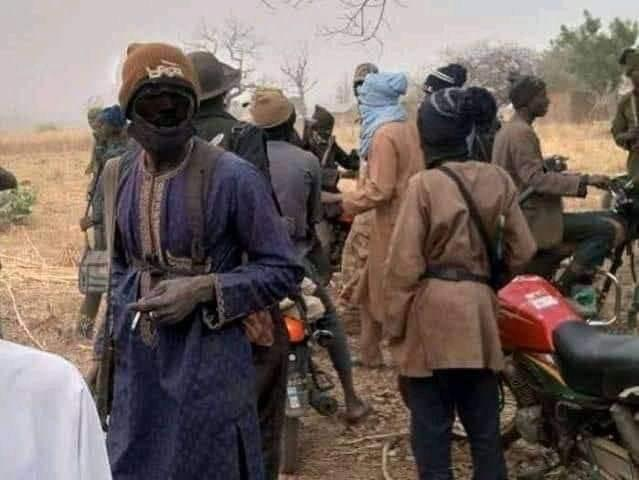The EFCC Chairman, Ola Olukoyede, is currently facing a pressing challenge as he directs the Enugu Zonal Office to locate a crucial property linked to a high-profile fraud investigation. This uncompleted four-bedroom bungalow, originally recovered from a fraudster, has mysteriously gone missing, prompting Ohha Microfinance Bank Limited to issue an ultimatum to the anti-graft agency. The bank is demanding that the EFCC produce the property within three months or face legal repercussions, as a court had previously ordered its sale to repay the bank. In light of this situation, Olukoyede has expressed disappointment over the handling of the case and has emphasized the urgency of locating the property in question. This directive underscores the EFCC’s commitment to addressing issues of fraud and ensuring that justice is served, particularly in cases involving recovered assets.
In the realm of financial crime enforcement, the Economic and Financial Crimes Commission (EFCC) is tasked with investigating and recovering assets obtained through fraudulent means. The current predicament involves the search for a property—a four-bedroom bungalow—previously identified as recovered from a convicted fraudster. The situation escalated when Ohha Microfinance Bank made a formal demand for the EFCC to account for the missing property, which is tied to a larger case of financial misconduct. With Ola Olukoyede at the helm, the EFCC is under pressure to fulfill its mandate, not only to recover lost assets but also to restore public trust in its operations. As the investigation unfolds, the spotlight remains on the agency’s Enugu Zonal Office to resolve this matter swiftly.
EFCC Chairman’s Directive to Locate Missing Property
The EFCC Chairman, Ola Olukoyede, has taken decisive action in response to the alarming situation regarding an uncompleted four-bedroom bungalow that has reportedly gone missing after being recovered from a notorious fraudster. This property, previously linked to Oliver Anidiobi, a former bank manager convicted of embezzling funds from Ohha Microfinance Bank, has become a focal point of legal contention. With a pre-action notice issued by the bank demanding the return of the property, Olukoyede’s directive to the Enugu Zonal Office underscores the urgency of resolving this matter. The commission is now tasked with locating the missing bungalow and ensuring it is returned to the bank as per court orders.
This directive has sparked discussions within the EFCC, as many officials express concern over the implications of this missing property. The potential legal ramifications and financial liabilities facing the commission are significant, especially considering the bank’s ultimatum for compliance within a strict three-month timeframe. Efcc’s credibility is on the line, and the chairman’s insistence on immediate action reflects a commitment to transparency and accountability as the agency navigates this fraud investigation.
The Role of Enugu Zonal Office in Recovering Assets
The Enugu Zonal Office of the EFCC plays a crucial role in asset recovery and fraud investigations, particularly in high-profile cases involving financial crimes. As the agency grapples with the complexities surrounding the missing bungalow linked to Oliver Anidiobi, the zonal office’s effectiveness is being put to the test. The recent directive from EFCC Chairman Ola Olukoyede emphasizes the expectation for this office to swiftly locate and recover the property, which is vital not only for the bank’s financial restitution but also for restoring public faith in the EFCC’s operational integrity.
Moreover, the pressure on the Enugu Zonal Office is compounded by the broader context of recent allegations of theft and misconduct within the commission. As the EFCC strives to maintain its reputation as a formidable force against financial crimes, the successful recovery of the bungalow will serve as a significant benchmark for the agency’s performance. The officials at the zonal office must collaborate effectively to ensure that this property is located promptly, thus reaffirming the commission’s commitment to justice and accountability in its fraud investigations.
Ohha Microfinance Bank’s Legal Actions
Ohha Microfinance Bank’s recent legal actions highlight the crucial intersection between financial institutions and law enforcement in the fight against fraud. The bank’s ultimatum to the EFCC for the return of the uncompleted four-bedroom bungalow underscores the desperation felt by financial entities when their assets are mishandled or go missing. The bank’s counsel has indicated that they are prepared to pursue legal action, including a claim for N100 million in compensation, should the EFCC fail to respond adequately to their demands. This situation not only reflects the bank’s frustration but also places additional pressure on the EFCC to deliver results.
Furthermore, the bank’s insistence on accountability and transparency resonates within the broader narrative of financial governance in Nigeria. With the EFCC’s previous conviction of Oliver Anidiobi for embezzlement, the expectation for the commission to recover and return the property is paramount. The ongoing legal tussle emphasizes the need for robust mechanisms that protect financial institutions and ensure that justice is served in cases of fraud. As the situation unfolds, the reactions from both the EFCC and Ohha Microfinance Bank will likely shape future interactions between financial entities and anti-graft agencies.
Investigating the Fraud Case Against Oliver Anidiobi
The fraud investigation involving Oliver Anidiobi, the former manager of Ohha Microfinance Bank, has not only led to his conviction but also opened a Pandora’s box of issues surrounding the management of recovered assets. Anidiobi was found guilty of diverting a staggering N219 million from the bank, and the subsequent court ruling mandated that three properties acquired through these illicit funds be seized. However, the failure of the EFCC to account for one of these properties, specifically the uncompleted bungalow, raises critical questions about the agency’s asset management practices and overall effectiveness in enforcing court orders.
The EFCC’s investigation into Anidiobi’s activities revealed a pattern of manipulation and deceit that has left the bank vulnerable. As the agency continues to grapple with the fallout from this case, it must also contend with the implications of missing assets that were supposed to provide restitution to the victims of Anidiobi’s fraud. The challenge for the EFCC lies not only in addressing the immediate demands of Ohha Microfinance Bank but also in reinforcing its commitment to robust investigative practices that ensure such oversights do not occur in the future.
Impact of EFCC’s Internal Challenges on Asset Recovery
The EFCC is currently facing a myriad of internal challenges that could significantly impact its ability to recover assets linked to financial crimes. Reports of theft within the commission, including a recent incident involving an officer from the Kaduna Zonal Office who allegedly stole over $30,000, have created a cloud of skepticism surrounding the agency’s operational integrity. Such incidents not only distract from the core mission of the EFCC but also undermine public trust in its commitment to combatting corruption and financial fraud.
These internal issues, including the detention of ten officials over allegations of theft, heighten the urgency for the EFCC to address its structural vulnerabilities. The agency must demonstrate that it can effectively manage recovered assets and respond to public and legal pressures, such as those from Ohha Microfinance Bank concerning the missing bungalow. As the EFCC navigates these challenges, its ability to fulfill its mandate will be closely scrutinized, making the successful recovery of assets more critical than ever.
Court Mandates and Compliance Issues
The legal framework governing the recovery of assets in Nigeria, particularly in cases of fraud, places significant emphasis on compliance with court orders. The EFCC’s failure to produce the uncompleted four-bedroom bungalow as mandated by the court in 2019 raises serious concerns about its adherence to legal obligations. Such compliance issues could have far-reaching implications for the agency’s credibility and its future operations within the realm of financial crime investigations.
As the EFCC works to address the concerns raised by Ohha Microfinance Bank, it must not only focus on locating the missing property but also assess its internal processes for managing recovered assets. The bank’s legal counsel has made it clear that they will pursue all legal avenues if the EFCC fails to comply with their demands, which could further complicate the agency’s responsibilities. By reinforcing its commitment to upholding the law and ensuring compliance with court directives, the EFCC can restore its reputation and enhance its effectiveness in fighting corruption.
Public Trust and Accountability in the EFCC
Public trust in the EFCC is paramount for the agency’s success in combating financial crimes. As the situation surrounding the missing bungalow unfolds, the public’s perception of the EFCC’s accountability and transparency is on the line. The recent allegations of theft and misconduct within the commission have already tarnished its image, and the pressure to recover assets promptly is greater than ever. The EFCC must act decisively to reassure the public that it prioritizes justice and accountability in all its operations.
In light of these challenges, the EFCC’s response to the demands of Ohha Microfinance Bank serves as a litmus test for its commitment to public service. By effectively locating the missing property and demonstrating a clear plan for asset recovery, the agency can begin to restore public confidence. The actions taken by the EFCC in the coming months will be critical in shaping the future of its relationship with the Nigerian public and will have lasting implications for its role as a guardian against corruption.
The Future of Financial Crime Investigations in Nigeria
The ongoing developments in the case involving the EFCC, Ohha Microfinance Bank, and the missing bungalow signal a pivotal moment for financial crime investigations in Nigeria. As the EFCC grapples with internal challenges and public scrutiny, the future of its operations will depend significantly on its ability to adapt and respond to emerging issues. The agency’s handling of this situation could set precedents for how financial crimes are investigated and prosecuted in the country.
Moreover, the evolving landscape of financial crime necessitates that the EFCC not only focus on recovering lost assets but also enhance its investigative capabilities. By adopting more robust protocols for asset management and establishing clearer communication channels with financial institutions, the EFCC can improve its effectiveness in tackling fraud. The resolution of the current crisis will have long-lasting effects on the agency’s reputation and its ability to fulfill its mandate in the fight against corruption in Nigeria.
Frequently Asked Questions
What actions has the EFCC Chairman taken regarding the missing property from Enugu Zonal Office?
The EFCC Chairman, Ola Olukoyede, has directed the Enugu Zonal Office to locate an uncompleted four-bedroom bungalow that was recovered from a fraudster. This directive came after Ohha Microfinance Bank issued an ultimatum for the EFCC to produce the property.
Why is Ohha Microfinance Bank demanding the recovery of the property from the EFCC Chairman?
Ohha Microfinance Bank has demanded the recovery of the uncompleted four-bedroom bungalow because a court had ordered the sale of the property in 2019, and the EFCC has not complied. The bank is seeking compensation if the property is not produced within three months.
What was the EFCC Chairman’s response to the pre-action notice from Ohha Microfinance Bank?
The EFCC Chairman responded promptly to the pre-action notice by instructing the Enugu Zonal Office to locate the missing property immediately and ensure that the proceeds are handed over to Ohha Microfinance Bank.
What is the background of the fraud investigation related to the EFCC Chairman’s directive?
The fraud investigation involves Oliver Anidiobi, a former bank manager who was convicted of diverting N219 million from Ohha Microfinance Bank. The EFCC had previously attached three properties, including the uncompleted bungalow, as a result of this conviction.
How has the EFCC Chairman addressed concerns about the disappearance of the recovered property?
The EFCC Chairman, Ola Olukoyede, expressed strong disappointment over the inability of officials to locate the uncompleted four-bedroom bungalow and has emphasized the need for swift action to resolve the matter.
What legal actions are being considered by Ohha Microfinance Bank regarding the EFCC Chairman’s handling of the case?
Ohha Microfinance Bank has indicated that it may pursue legal action against the EFCC for failing to produce the property as ordered by the court, seeking compensation of N100 million if the issue is not resolved.
What previous convictions related to fraud has the EFCC Chairman overseen?
The EFCC Chairman has overseen the conviction of Oliver Anidiobi, who was sentenced to eight years in prison for defrauding Ohha Microfinance Bank and was ordered to forfeit properties acquired with the proceeds of his crimes.
What implications does the missing property have for the EFCC Chairman’s reputation?
The ongoing issue of the missing property raises concerns about the EFCC Chairman’s oversight and the integrity of the agency, particularly in light of recent theft cases involving EFCC officials.
| Key Points | Details |
|---|---|
| EFCC Chairman’s Directive | Ola Olukoyede instructed the Enugu Zonal Office to locate a missing property. |
| Property Details | An uncompleted four-bedroom bungalow recovered from fraudster Oliver Anidiobi. |
| Ultimatum from Ohha Microfinance Bank | The bank demands the EFCC produce the property within three months. |
| Legal Action Threatened | The bank will sue EFCC for N100 million if the property is not produced. |
| Previous Conviction | Oliver Anidiobi was convicted for diverting N219 million from Ohha Microfinance Bank. |
| Property Disappearance Concern | EFCC officials stated they could not locate the bungalow during identification. |
| Bank’s Frustration | The bank expresses regret over the EFCC’s failure to respond or locate the property. |
| EFCC Internal Issues | Reports of theft and operational issues within EFCC offices. |
Summary
The EFCC Chairman, Ola Olukoyede, has taken significant action in response to the alarming situation regarding the missing property, a four-bedroom bungalow, linked to fraudster Oliver Anidiobi. This directive underscores the EFCC’s commitment to uphold justice and address the grievances of Ohha Microfinance Bank, which has been waiting for over five years for the recovery of assets ordered by the court. The urgency of this matter not only highlights the need for accountability within the EFCC but also reflects the growing frustration of financial institutions when their legal rights are overlooked. Ensuring that such cases are handled promptly is crucial for maintaining public trust in the EFCC and its operations.



